Morgan R. Muller
Hobbies: graphic design, reading, writing, & photography • Favorites: dogs, chicken fingers, & books
Contributor I
- Plebian Penman
- Lurker
- Pssst
- Hand Raiser
- Sharp-Eyed Citizen
- Well Read
- ?
- Articles
6 - Featured
1 - Comments
48
- Ext. Comments
42 - Processed
7 - Revisions
6
- Topics
7 - Topics Taken
1 - Notes
11
- Topics Proc.
2 - Topics Rev.
0
- Points
879 - Rank
152 - Score
462
Latest Articles
Latest Topics
Fashioning Female IdentityThe emphasis of a woman’s appearance as a means of fashioning an identity in literature, art, film, or TV. Discuss and explore the ways in which fashion and consumer culture influence individual self-creation (whether it be in literature, film, etc.). Female beauty and self-confidence are consistently linked to male attention in literature, and this “beauty” that attracts the men is, most of the time, some kind of physical beauty. This topic would analyze how beauty is equated with physical appearance (meaning possession of expensive commodities and attractive body shape) and how a woman’s level of attractiveness is often linked to the status, price and brand, of her clothing and commodities in literature, film, or TV. Furthermore, discuss the idea that women’s appearances are emphasized and linked to consumer culture and often times used as a means of connection to wealth and status in literature, TV, film, or any other form of art/ popular culture.
|
Hollywood's Representation of African HistoryThere has been much debate about the representation of Africa (past and present) in popular culture; specifically, in the music and film industries. For example, in Taylor Swift's music video for her song "Wildest Dreams," set in colonial Africa, the representation of Africa is directly through the lens of white Western lives. The trope of white colonial romance in Africa is a main element of the music video. Why is popular culture so invested in this theme of white colonial romance in Africa and how does this perpetuate racist stereotypes in the media today? How does hollywood and popular culture's celebration of white colonial privilege promote racist stereotypes and silence African agency and voice?
|
Gendered HumorAnalyze the theory or cultural understanding and/or gender ideology that women aren’t funny and the idea that when women use "men’s humor" they are judged as being profane. Also, explore who men and women have used humor to degrading women and desensitize audiences to serious topics such as rape, sexual assault, etc. Why are categories of humor based on gender? What about just calling it human humor?
|
Popular Culture Depiction of Women in PrisonAnalyze representations of female prisoners in the media (TV, movies, etc.) and explore the question of whether or not these depictions are accurate and/or realistic portrayals of women in prison and/or women's correctional facilities. This topic can also be broadened to include all people (male, female, etc.). Some examples of content that can be analyzed would be representations of female prisoners in the television series Orange Is The New Black and/or the television series Prison Break, etc.
|
Published | Gender Ideology in Disney Princess FilmsThe representations of gender in the Disney princess films is an important topic for discussion in terms of the lasting gender images of femininity and masculinity such movies have on younger generations, especially younger females. The earlier films, such as Sleeping Beauty, demonstrate how culture constructs femininity and masculinity in terms of the beauty ideals. Later films, such as Brave, portray femininity with a more masculine touch by adding male characteristics, such as independence, athleticism, and courage, to the female protagonists. Overtime, have the representations of femininity and the roles and expectations of Disney princesses changed for the better? How do these new representations of gender ideology positively or negatively influence young viewers?
|
Gender Identity in Shakespeare's WorksAnalyze William Shakespeare's various constructions of gender through his plays and/or sonnets and explore the significance of gender identity in his works. For example, in King Lear Shakespeare’s construction of gender emphasizes the multiple family betrayals and the humankind’s constant committal of sin. In many of his plays, Shakespeare plays around with gender identity and sexuality…why does he do this and what are the underlying themes/ points he makes through his constructions of gender?
|
Shakespeare's Famous Founding FoolsShakespeare’s stage clowns stand apart from his other characters by the way they break down barriers, provide comic relief, and guide the audience through the many layers of complexity that are characteristic of all of his plays. Shakespeare’s progress towards self-discovery by way of disguise and foolery is achieved through the invention of these comic characters. The creation of these fools symbolizes one of Shakespeare’s many contributions to literary tradition. More importantly, these Fools are the critics inside his plays and without their truthful presence Shakespeare’s works would be transformed for the worse. With his famous founding fools, Shakespeare reveals faults in judgment and values and never fails to shed light on the socio-cultural Renaissance atmosphere. So, the question up for discussion is what would Shakespeare's works be without his famous founding fools?
|
Latest Comments
| Gender Myths in Neil Gaiman's American Gods | |
Very interesting topic and well written article, great job! | How 'By the Book' Should Literary Adaptations Be? |
Very interesting article and intriguing topic for discussion! | Unbear(d)able: The Rise of Secondary Sexual Characteristics in Television |
Yes, yes she is; but, that is the beauty of her writing :). | Virginia Woolf: A Palpable Parody of Patriarchal Power |
I completely agree, for that sentence was not phrased well and my intention was to draw conclusions about Woolf’s characters existing in the early 1900s. Thank you for the comment! | Virginia Woolf: A Palpable Parody of Patriarchal Power |
Thank you very much for writing this piece and bring this crucial issue into discussion. I watched the first two seasons of Game of Thrones and had to stop because I was disgusted by endless scenes featuring rape, assault, and violence against women. “The more we see rape on television, the more it becomes expected and normalized. Instead we should ask ourselves, “do these scenes perpetuate a culture that encourages violence against women?” The latter point that you made is extremely important. Thank you for posing this question and shedding light on a subject that is excused and ignored. Also, to the point you made about fans of the show excusing these horrific scenes of rape and sexual assault by saying it is a part of the culture/ society that the show is portraying and the idea that (as you said) “There is sexual violence in the world and many insist that this is a good enough reason for it to appear on film. This would imply that TV shows always relay to us what is really going on outside of our living room. Television is not about reality, it is about perception.” I completely agree–if TV shows relayed reality then why is it that there are so few male rape scenes shown on television? Male rape is a reality, but you rarely see it portrayed on TV shows…so why is it okay to watch countless scenes of female rape, sexual abuse, and violence? Great article and analysis. Thank you for writing this. | Sexual Assault in HBO's Game of Thrones |
Interesting defense to the pointless nudity on Game Of Thrones and a compelling topic to explore and analyze. Love the witty title and voice of the article, great job! | Game of Thrones: Don't Judge a Boob by its Cover |
Interesting take on an intriguing subject for discussion and awesome observations. Great job! | America's Next Top Monster |
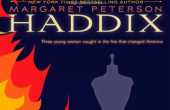
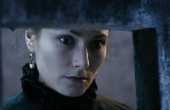
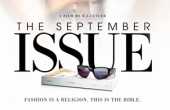
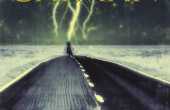
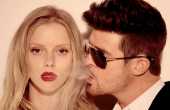
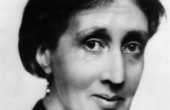
I completely agree. He tends to introduce extremely intriguing female characters and then have them fade away from the text–they come and go rather quickly.